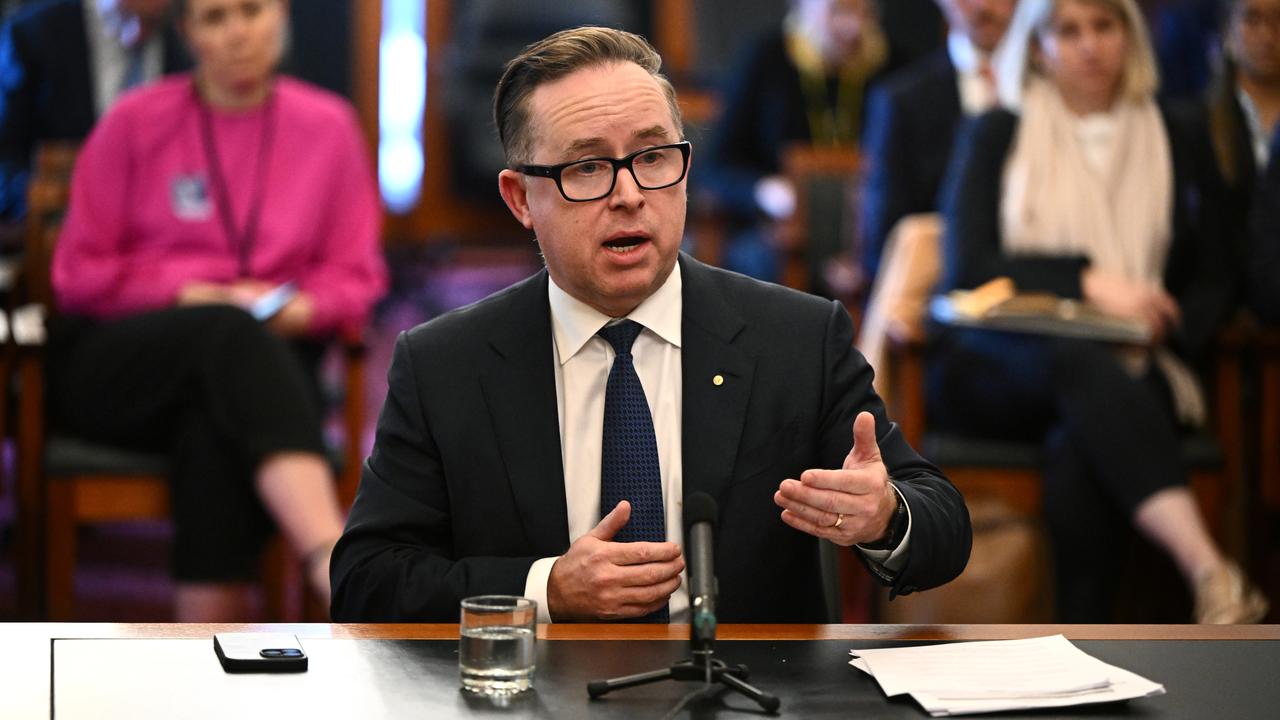The Qantas Code of Conduct and Ethics is perhaps the most ignored and hypocritical document in corporate Australia. Michael Sainsbury checks out the myriad breaches.
There is, perhaps, no more damning indictment of corporate hypocrisy than the behaviour of Qantas, its senior management and board when compared to their own lofty internal Code of Conduct and Ethics.
The 13-page document is peppered with the words: ethics, respect, judgment, trust, dignity, fairness and equity all of which have been in as short supply as on-time flights.
There are clear breaches of the Code of Conduct by the national carrier and also by its board of directors, who are responsible for the company, and its former ‘star’ chief executive Alan Joyce; breaches on every single page. We will parse these shortly.
Although Qantas is by no means the only blue chip Australian company to breach regularly its own stated ethics code, it stands out as a symbol of corporate malfeasance as it is Australia’s best known brand world-wide, our biggest recipient of government subsidies in history, and the number one example of the rabid pursuit of profits corroding customer staff and customer confidence.
ACCC sting
With the ACCC dragging Qantas into court for the immense deception which was selling tickets to 8,000 cancelled flights, there are calls to strip Joyce and others of their bonuses. The myriad breaches of the Qantas Code will no doubt fortify the board and major shareholders in dealing with this issue and restoring confidence in the airline and its management.
The Qantas Code of Conduct is a document buried in deep in the bowels of the company’s website and that appears on page a of last year’s annual report. You have to know where to look.
Business Principles: ‘non-negotiable’ or non-existent?
Even the quickest glance at the document, page 1, sets the alarm bells ringing:
“The Qantas Group’s Non-Negotiable Business Principles are: a) we are committed to safety as our first priority; b) we comply with laws and regulations; c) we treat people with respect; d) we act with honesty and integrity, upholding ethical standards; e) we are committed to true and fair financial reporting; f) we are committed to environmental sustainability; g) we have a responsibility to safeguard the Qantas Group’s reputation, brands, property, assets and information; and h) we proactively manage risk.”
Employees and customers have not been treated with respect, safety has been compromised by cost-cutting, the company is in myriad alleged breaches of competition laws, ‘honesty and integrity’ does not involve the chief executive selling his personal shares into a share buy-back, environmentally (although perhaps unavoidably) this is one of Australia’s biggest polluters and is big into greenwashing, the brand and reputation have been trashed. This risk has not been ‘proactively managed’.
Influence peddling
Then from 3.16. Requirements come this:
The Qantas Group requires a high degree of caution in relation to the giving and receiving of gifts, benefits (including expenses and entertainment) and hospitality (GBH) to or from Public Officials. On that basis, Personnel must: (a) never offer, give or receive Anything of Value, including cash or cash equivalent (including a daily allowance or per diem), (d) regardless of value, is not given or received at a frequency which could reasonably be seen as being intended to improperly influence any person or reward an action
Qantas is one of the biggest influence peddlers in Australia. With zero transparency, the company (at the CEO’s pleasure) invites sitting politicians, heads of government agencies, corporate chieftains and High Court judges to its Qantas Chairman’s Lounge.
In itself, this is an egregious breach of the Code. Members receive flight upgrades, high quality food and liquor and valet service – such as a direct phone contact to change flight details – not available to other passengers. Once, no longer in a position of influence their memberships are often revoked.
3.2 Compliance with the law means observing the letter and spirit of the law as well as managing the business of the Qantas Group so that the Group and its Personnel are recognised as “good corporate citizens” at all times in the way they conduct business and in connection with their employment.
Qantas has been found twice by the Federal Court to have illegally sacked 1,700 workers. The case is now on appeal at the High Court. That, along with the ACCC case against Qantas for illegally flogging tickets to ‘Ghost Flights’ would appear to make a mockery of the ‘letter of the law’ while the ‘spirit of the law’ has been smashed umpteen times, for instance in the corporate strategy to set up dozens of subsidiaries to skirt around paying union awards for employees. We could go on with spirit. Tax springs to mind.
3.3 The Qantas Group supports a “zero tolerance” approach to crime and corruption in relation to the Group’s operations.
Again, there appears to be quite a bit of tolerance towards corruption, or at least the perception of corruption. Alan Joyce, if he knew about the ACCC sting, which he should have and very likely did earlier this year, should not have sold $17m worth of shares into the Qantas share buy-back at far higher prices than today.
Insider Trading: Legal prohibition applicable to all Personnel
3.55 The principal insider trading prohibition in Australian law is contained in section 1043A of the Corporations Act.
3.56 Personnel must not Deal in Qantas Securities while in possession of Material Non-Public Information.
The board of directors too should never have allowed him to do this on the basis that a lawsuit for deliberately misleading and deceptive conduct over the 8,000 phantom flights was ‘material information’ which should have been disclosed to the ASX under the ‘continuous disclosure’ regime to allow fair trading for investors. It was not disclosed until two week ago. Joyce sold in June.
Disclosure is both an ethical and a legal requirement.
Inclusion and diversity 3.81 The Qantas Group is committed to building and fostering a culture in which inclusion and diversity is valued and championed, and to providing a workplace that is safe, inclusive, respectful and where all our people feel they belong. This means that Personnel must: (a) be proactive and take responsibility for their part in fostering and maintaining an inclusive culture; (b) treat Personnel, Qantas Group customers and suppliers, and other people with trust, dignity, respect, fairness and equity and not engage in bullying, harassment, discrimination or victimisation; (c) be beyond reproach in matters of trust, honesty and confidentiality and never misuse any privilege, authority or status; and (d) co-operate with other Personnel for the benefit of customers.
Such has been the decline in corporate culture during the past 15 years, and the bitterness between staff and management, due to extreme cost cutting and outsourcing that it has affected operations quite severely. This is evident in the views of thousands of Australian customers on social media complaining about services. Due to executive and board avarice, neither customers or employees have been treated with dignity, respect or fairness.
This might have been vaguely understandable if Qantas was an entity fighting for survival in a free market but this company received $2.7 billion in government subsidies such as JobKeeper. It is a monopolist propped up by public money.
One stand-out case of employee satisfaction is the video which emerged online of Qantas baggage handlers literally chucking peoples luggage around. The morale has been low for years, from pilots and crew to engineers, baggage handlers and other employees.
Then there’s the Suppliers Code
It’s not just customers and staff who have been victims of Qantas professed very high ethical standards, it’s suppliers as well.
In the Qantas Group Suppliers Code of Conduct one section particularly caught our eye.
LABOUR AND HUMAN RIGHTS
The Qantas Group is committed to the respect of Human Rights as set out in the UN Universal Declaration of Human Rights. We expect all our suppliers to adhere to the same human rights standards as we do, and to treat others with trust, dignity, respect, fairness and equity. Our objective is to ensure the working conditions of workers in our supply chain meet applicable legislation and relevant labour standards, including those set out in the Universal Declaration of Human Rights, the UN Convention on the Rights of the Child and the International Labour Organisation Declaration on Fundamental Principles and Rights at Work.
Yet Qantas has outsourced work, that is part of its supply chain to countries in the Middle East where homosexuality is illegal and can be punishable by death, where women are treated as second class citizens and the ill-treated treatment of immigrant workers is extremely well documented.
The hypocrisy, from a company that pretends to champion LGBTQI rights, for instance, is breathtaking.
Breaches are for workers, not bosses
5.1 Any breach of applicable laws, prevailing business ethics or other aspects of the Code will result in disciplinary action. Depending on the severity of the breach, such disciplinary action may include reprimand, formal warning, demotion or termination of employment.
5.2 Similar disciplinary action will be taken against any supervisor or Manager who directly approves and/or condones such breach or has knowledge of the breach and does not immediately take appropriate remedial action.
5.3 Breach of applicable laws or regulations may also result in prosecution by appropriate authorities. The Qantas Group will not pay: (a) directly or indirectly, any penalties imposed on Personnel as a result of a breach of law or regulation; or (b) the legal costs of Personnel convicted of breaching such law or regulation. 5.4 All material breaches will be reported to the Board.
Assorted business lobby groups have kept mum on the Qantas debacle because they, like the Qantas board, are part of the same club: the big corporate directors’ club; and literally, as member of the Qantas Chairman’s Lounge.
Their view no doubt will be that the early resignation of Alan Joyce is a scalp which salves and solves the problem. Yet the decline of Qantas is no run of the mill corporate scandal, it represents everything which is wrong with business in Australia: the failure (ACCC excepted now, belatedly) of the political classes and governance bodies to keep corporations in check, and the pursuit of profit and personal gain to the point of management incompetence.
It represents extreme corporate welfare and the fall in public confidence not just in government but in all large institutions. That is why the Qantas scandal is such a big story.
As for culpability, the point of company directors is to take ultimate responsibility for the company. Clearly they have failed ethically yet this is a legal duty too. For the board to continue in this climate, weathering the storm of scandals – presiding over what was once a national treasure of which Australians could be proud – is not on.
If the buck really stops with the board, as the directors’ lobby claims it does, they should fall on their swords, for it is they who are responsible for treating customers, staff and the Australian public with such disrespect.
Then the task of rebuilding can begin.
Michael Sainsbury is a former China correspondent who has lived and worked across North, Southeast and South Asia for 11 years. Now based in regional Australia, he has more than 25 years’ experience writing about business, politics and human rights in Australia and the Indo-Pacific. He has worked for News Corp, Fairfax, Nikkei and a range of independent media outlets and has won multiple awards in Australia and Asia for his reporting. He is a fierce believer in the importance of independent media.

